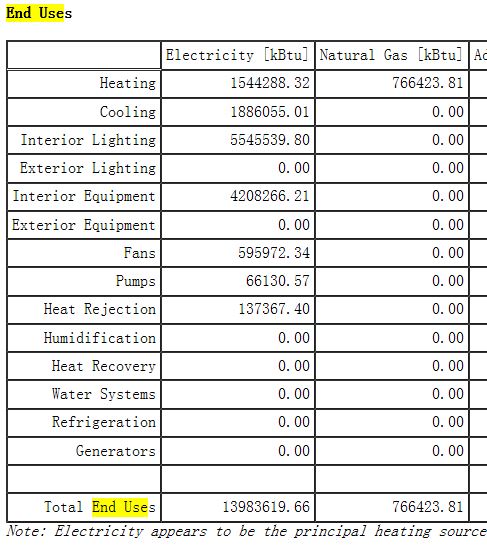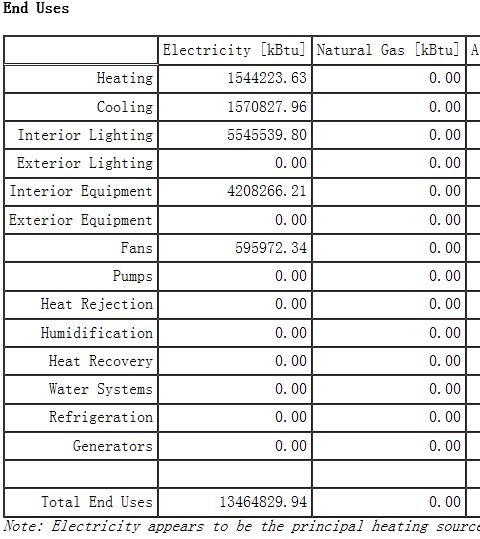VRF air cooled system compared to water cooled VRF system
I am modelling both a VRF water cooled system and a VRF air cooled system. I had a number of issues with the water cooled system which were resolved here and here .
In a nutshell for the climate I am simulating (NewMark international airport in New Jersey) without a heat source the VRF's plant loop gets too cold in winter and the VRF system has to disable itself. Resulting in a large number of hours were the set point is not met.
This can be resolved by adding a boiler to the VRF's plant loop. Thereby keeping the plant loop above a minimum temperature enabling the VRF to operate throughout the year and meet all the set point hours throughout the year.
The issue now is that initally I expected the VRF water cooled system to be more efficient than the air cooled system. (This is my first time modelling such a system) I've now discovered from this simulation that this is not the case.
For me a number of questions remain about the results and my expectations for this simulation which I would appreciate your help with. Please refer to the summary report screenshots below.
Even after optimizing the boiler availabity schedule to turn off for all except the coldest months. The VRF water cooled cooling electricity use is higher than the air cooled cooling electricity use. Does this make sense? Is there something I need to optimize here to improve the performance of the water cooled cooling electricity use vs the air cooled?
The air cooled electricity heating use is nearly identical to the water cooled electricity heating use. This makes sense since they are both heat pump systems. However the water cooled system also uses natural gas to fire the boiler in the coldest months to keep the plant loop within a reasonable temperature. What confuses me here is why is the air cooled system able to operate in winter and meet all the setpoints while the water cooled system cannot without a boiler?
The water cooled system also requires electricity for fans and heat rejection from the condensor while the air cooled system does not. Does that mean the air cooled system is inherently more efficient?
Water cooled results

Air cooled results

In brief should I expect a air cooled system to be more efficient in this climate? Or is it just a matter of optimizing the water cooled system?
Any insights/suggestions would be greatly appreciated!
The models can be seen here
Thanks you!





